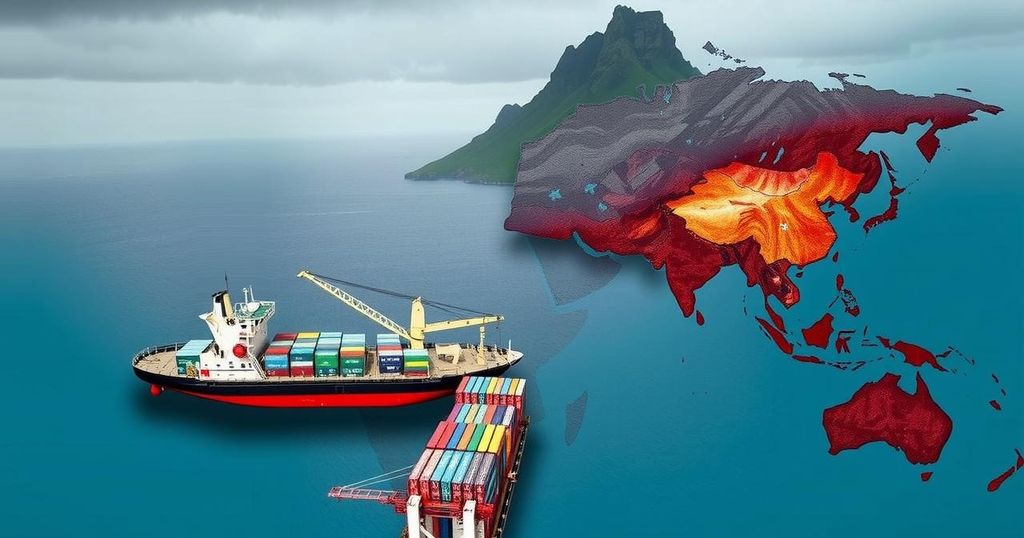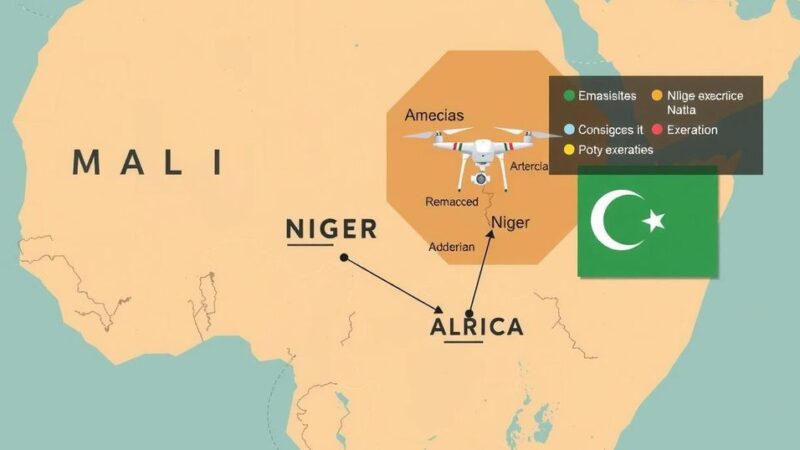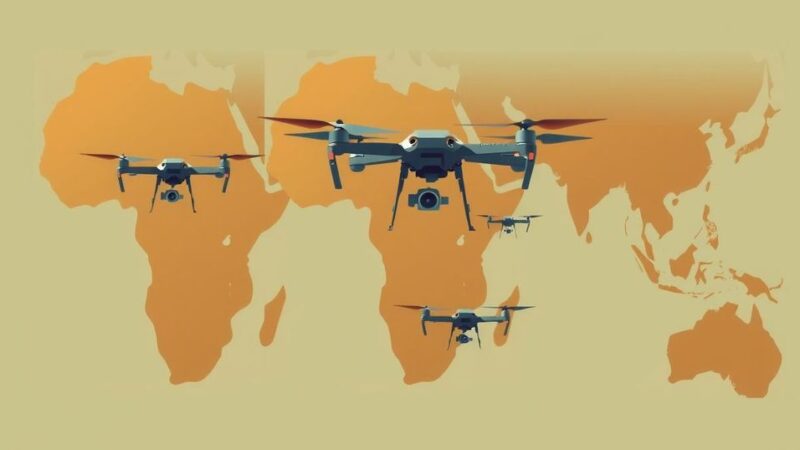U.N. experts report that rebels in eastern DRC exported illegally mined coltan to Rwanda, contaminating the mineral supply chain in the Great Lakes Region. The M23 group seized control over mining areas, generating substantial revenue through taxes while complicating procurement for tech manufacturers, who face scrutiny over conflict minerals. Apple has faced allegations of utilizing these minerals, which it disputes, amid ongoing legal challenges from the DRC.
In a recent report by U.N. experts, it has come to light that rebels in the eastern Democratic Republic of Congo illicitly exported approximately 150 metric tons of coltan to Rwanda last year. This development has resulted in unprecedented contamination of the mineral supply chain in the Great Lakes Region. The M23 movement, believed to be supported by Rwanda, extended control over the mineral-rich Rubaya area, which has posed significant challenges for technology firms scrutinizing their supply sources.
The report, presented to the U.N. Security Council, elucidates how the M23 controlled access to transportation routes, thereby blending the minerals from Rubaya with legally produced Rwandan minerals. This situation poses serious implications for procurement processes, especially for tech manufacturers under pressure to avoid conflict minerals. The report highlighted that the rebels established a mining ministry in occupied territories and garnered approximately $800,000 monthly in taxes from coltan trade.
The rebels also intensified the financial incentives for laborers by doubling their wages to maintain productivity and employed forced labor to facilitate road construction for trucks transporting minerals. Additionally, they restricted mineral sales to designated Congolese and Rwandan traders to consolidate control over this lucrative resource. In December, the Democratic Republic of Congo initiated legal action against Apple subsidiaries in France and Belgium, alleging the use of conflict minerals in their supply chains, a claim Apple refutes, insisting it has mandated suppliers to avoid sourcing from these conflict zones.
The article addresses the repercussions of illegal mineral exports from the eastern Democratic Republic of Congo to Rwanda, specifically focusing on coltan, a crucial mineral utilized in electronics. The M23 movement, a rebel group with known ties to Rwanda, has exerted control over rich mineral areas, significantly impacting the mineral supply chain across the Great Lakes Region. The report from U.N. experts sheds light on the complexities surrounding mineral procurement in technology sectors, emphasizing the ethical considerations tied to sourcing from conflict-affected regions.
The findings from the U.N. report paint a troubling picture of the illicit activities surrounding mineral exports from eastern Congo to Rwanda, highlighting the significant tax revenues generated by the M23 rebels and the implications for global supply chains. The allegations against major tech firms, such as Apple, for using conflict minerals reveal the ongoing challenges in ensuring ethical sourcing practices and the need for rigorous monitoring of mineral supply chains to prevent the exploitation of vulnerable regions.
Original Source: www.hindustantimes.com






